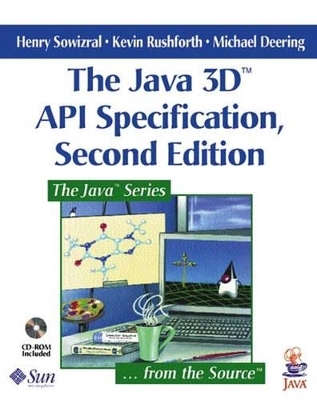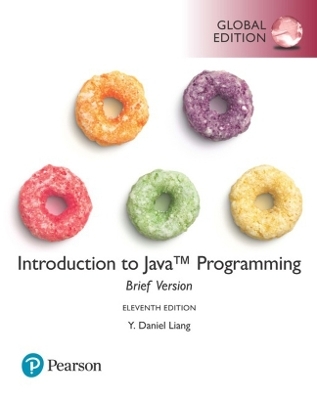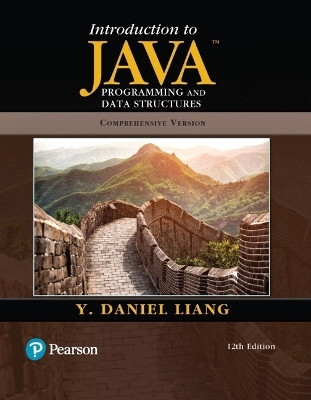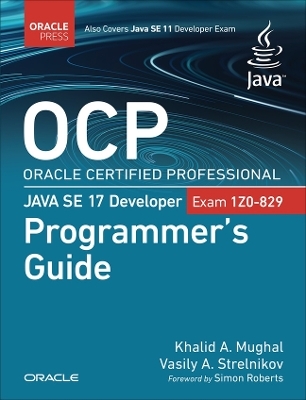
The Java 3D™ API Specification
Addison Wesley
978-0-201-71041-0 (ISBN)
- Titel ist leider vergriffen;
keine Neuauflage - Artikel merken
Comprehensive and definitive, this is the essential reference for Java programmers building multi-platform and Internet 3D applications with the latest version of the Java 3D API. The Java 3D API Specification, Second Edition covers the new Java 3D API in unprecedented depth, going beyond the "raw" spec to provide practical insight for sophisticated developers, straight from Sun Microsystems' Java 3D experts. Start by understanding Java 3D's goals, programming paradigm, object hierarchy, program structure, and performance features. Next, master the basics of creating, rendering, and manipulating 3D geometry, including working with Java 3D scene graphs; using key components such as group node and leaf node objects; reusing scene graphs, and more. The CD, new to this edition, contains numerous examples, demos, and source code.
Henry Sowizral, a Distinguished Engineer at Sun Microsystems, is the chief architect of the Java 3D API. He is an expert in virtual reality, large-model visualization, and distributed systems. He is co-inventor of the Time Warp simulation methodology. Kevin Rushforth, a Senior Staff Engineer at Sun Microsystems, is a co-architect of the Java 3D API. He has worked extensively in graphics hardware simulation, microcode, and graphics pipeline software. He is expert in such APIs as PHIGS+, XGL, and OpenGL, and such hardware devices as the Ultra Creator3D. Michael Deering is a Distinguished Engineer at Sun Microsystems, where he has led the company's 3D graphics technical strategy. He is a co-architect of the Java 3D API and was the chief architect for a number of Sun's 3D graphics hardware accelerators. He is an expert in virtual reality. 0201710412AB04062001
Figures.
Preface.
1. Introduction to Java 3D.
Goals.
Programming Paradigm.
High Performance.
Support for Building Applications and Applets.
Overview of Java 3D Object Hierarchy.
Structuring the Java 3D Program.
2. Java 3D Concepts.
Basic Scene Graph Concepts.
Features of Java 3D.
3. Scene Graph Basics.
Scene Graph Structure.
Scene Graph Objects.
Scene Graph Superstructure Objects.
Scene Graph Viewing Objects.
4. Scene Graph Superstructure.
The Virtual Universe.
Establishing a Scene.
Loading a Virtual Universe.
Coordinate Systems.
High-Resolution Coordinates.
API for Superstructure Objects.
5. Group Node Objects.
Group Node.
BranchGroup Node.
TransformGroup Node.
OrderedGroup Node.
DecalGroup Node.
Switch Node.
SharedGroup Node.
6. Leaf Node Objects.
Leaf Node.
Shape3D Node.
BoundingLeaf Node.
Background Node.
Clip Node.
ModelClip Node.
Fog Node.
Light Node.
Sound Node.
Soundscape Node.
ViewPlatform Node.
Behavior Node.
Morph Node.
Link Node.
AlternateAppearance Node.
7. Reusing Scene Graphs.
Sharing Subgraphs.
Cloning Subgraphs.
8. Node Component Objects.
Node Component Objects: Attributes.
Node Component Objects: Geometry.
Math Component Objects.
9. View Model.
Why a New Model?.
Separation of Physical and Virtual.
The Objects That Define the View.
ViewPlatform: A Place in the Virtual World.
Generating a View.
A Minimal Environment.
The View Object.
The Screen3D Object.
The Canvas3D Object.
The PhysicalBody Object.
The PhysicalEnvironment Object.
10. Behaviors and Interpolators.
Behavior Object.
Composing Behaviors.
Scheduling.
How Java 3D Performs Execution Culling.
The Behavior API.
Interpolator Behaviors.
Level-of-Detail Behaviors.
Billboard Behavior.
11. Input Devices and Picking.
InputDevice Interface.
Sensors.
Picking.
12. Audio Devices.
AudioDevice Interface.
AudioDevice3D Interface.
Instantiating and Registering a New Device.
13. Execution and Rendering Model.
Three Major Rendering Modes.
Instantiating the Render Loop.
14. Immediate-Mode Rendering.
Two Styles of Immediate-Mode Rendering.
Canvas3D Methods.
API for Immediate Mode.
A. Math Objects.
Tuple Objects.
Matrix Objects.
3D Geometry Compression.
Compression.
Decompression.
Appendix Organization.
Generalized Triangle Strip.
Generalized Triangle Mesh.
Position Representation and Quantization.
Color Representation and Quantization.
Normal Representation and Quantization.
Modified Huffman Encoding.
Compressed Geometry Instructions.
Bit Layout of Compressed Geometry Instructions.
Compressed Geometry Instruction Bit Details.
Semantics of Compressed Geometry Instructions.
Semantics of Vertices.
Outline of Geometry Process.
Compressed Geometry Assembly Syntax.
Compressed Geometry Instruction Verifier.
View Model Details.
An Overview of the Java 3D View Model.
Physical Environments and Their Effects.
The Coordinate Systems.
The ViewPlatform Object.
The View Object.
The Screen3D Object.
The Canvas3D Object.
The PhysicalBody Object.
The PhysicalEnvironment Object.
Viewing in Head-Tracked Environments.
Compatibility Mode.
Exceptions.
BadTransformException.
CapabilityNotSetException.
DanglingReferenceException.
IllegalRenderingStateException.
IllegalSharingException.
MismatchedSizeException.
MultipleParentException.
RestrictedAccessException.
SceneGraphCycleException.
SingularMatrixException.
SoundException.
Equations.
Fog Equations.
Lighting Equations.
Sound Equations.
Texture Mapping Equations.
The Utility Packages.
The Utility Packages.
Package Overview.
audioengines Package.
audioengines.javasound Package.
loaders Package.
loaders.lw3d Package.
loaders.objectfile Package.
utils.applet Package.
utils.behaviors.interpolators Package.
utils.behaviors.keyboard Package.
utils.behaviors.mouse Package.
utils.compression Package.
utils.geometry Package.
utils.image Package.
utils.picking Package.
utils.picking.behaviors Package.
utils.universe Package.
CD-ROM Installation.
What's on the CD-ROM.
Installing the Software on Windows 8/NT Systems.
Installing the Software on Solaris Systems.
Accessing the Documentation from the CD-ROM.
The Example Programs.
Introduction.
Running the Example Programs.
Program Descriptions.
Glossary.
Index. 0201710412T04062001.
| Erscheint lt. Verlag | 29.6.2000 |
|---|---|
| Verlagsort | Boston |
| Sprache | englisch |
| Gewicht | 1038 g |
| Themenwelt | Informatik ► Programmiersprachen / -werkzeuge ► Java |
| Mathematik / Informatik ► Informatik ► Web / Internet | |
| ISBN-10 | 0-201-71041-2 / 0201710412 |
| ISBN-13 | 978-0-201-71041-0 / 9780201710410 |
| Zustand | Neuware |
| Haben Sie eine Frage zum Produkt? |
aus dem Bereich


